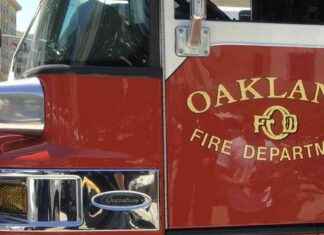More than one hundred and forty heads of state must follow one another, Friday December 1 and Saturday December 2 in Dubai, at the COP28 podium, summoned to announce how they intend to increase their commitments to resolve an ever more threatening climate crisis, without being able to avoid the shadow of the Israel-Hamas conflict.
The 28th United Nations conference successfully kicked off on Thursday, with the historic realization of a fund to compensate for climate losses and damage in vulnerable countries. Even if the first funding promises – around $400 million (€367 million) – remain symbolic in the face of needs, estimated in hundreds of billions of dollars.
Behind this positive signal, essential to ease tensions between the North and the South, everything remains to be done between now and the end of COP28, on December 12, to correct the trajectory which is taking humanity towards a climate between 2.5 and 2.9 degrees warmer by the end of the century compared to the pre-industrial era. Firstly, it is a question of reviewing “the role of fossil fuels”, as Sultan Al-Jaber, Emirati president of COP28, recognized on Thursday, under scrutiny given his other role as captain of the oil and gas industry.
The results of the first day have visibly strengthened the confidence of the Emirati, convinced that it can achieve what no COP has done before. After three days of media storm over accusations of conflicts of interest, he smiled again on Thursday evening and ordered country delegations to “adopt a different state of mind, to consider that compromise is essential”.
The shadow of war in Gaza
Some one hundred and forty leaders, including King Charles III, French President Emmanuel Macron, his Turkish counterparts, Recep Tayyip Erdogan, or Brazilian counterparts, Luiz Inacio Lula da Silva, and even the American Vice-President, Kamala Harris, are expected during these two days. Joe Biden and Xi Jinping, at the head of the largest emitters of greenhouse gases, the United States and China, will be notably absent. The pope, suffering from the flu, canceled his visit, which would have been unprecedented.
The war in Gaza was invited to the COP. Israeli President Isaac Herzog is in Dubai and will be at the COP on Friday as part of a broad diplomatic campaign aimed at securing the release of hostages held in the Gaza Strip. The President of the Palestinian Authority, Mahmoud Abbas, initially announced by the UN, will ultimately be represented by his Minister of Foreign Affairs, Riyad Al-Maliki.
Emissions decline target
In this context, COP28 must deliver a first official assessment of the Paris agreement and a first, urgent corrective if we hope to maintain the objective of limiting warming to 1.5 degrees. To achieve this, the decline in emissions must reach ?43% by 2030 compared to 2019, according to climate experts from the IPCC. However, the peak of greenhouse gas emissions, although close, has not yet been reached, at the end of a year 2023 which is undoubtedly the hottest on record.
“Countries must reach an agreement to immediately put an end to the expansion of fossil fuels and organize their gradual, fair and equitable elimination,” underlined Thursday Romain Ioualalen, of the NGO Oil Change International. This requires action by “rich countries to redirect the billions given to the fossil fuel industry towards tripling renewable energies and doubling energy efficiency”, two stated objectives of the COP28 presidency.
Forests, which store carbon but are threatened, will also be discussed on Friday. Brazilian President Lula will advocate for the creation of a permanent fund for the world’s three major forest basins (Amazon, Congo and Borneo-Mekong), saying he wants to “see if rich countries are really ready to invest so that endowed countries of [tropical] forests can keep them standing.” “The planet is not joking, it is warning us: take care of me, otherwise it will not work…” he told journalists in Doha on Thursday.






